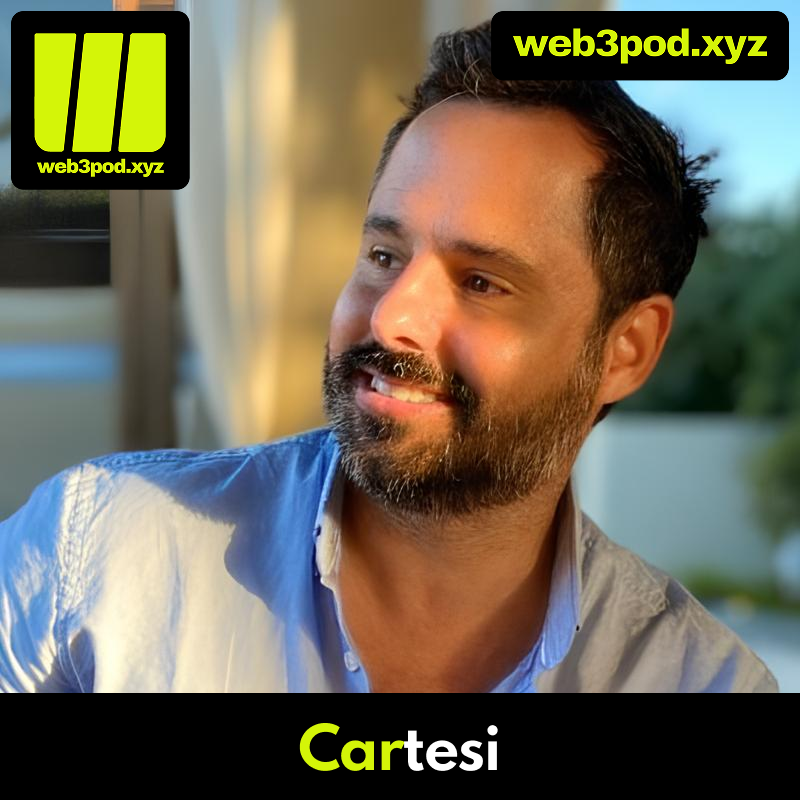Building the Future of Predictions with Azuro

Welcome to another insightful episode of the Web3 with Sam Kamani podcast. In this 145th episode, we have Dan from Azuro, a pioneering prediction layer on the Polygon blockchain. If you're an innovator or entrepreneur in the Web3 space, this conversation is a goldmine of information.
Introduction to Azuro
Azuro started as a decentralized betting platform focused on sports betting. Over time, it evolved into a more scalable infrastructure layer for various types of predictions, including political and social events. Today, Azuro provides the foundation for developers to create their own prediction applications, offering liquidity, development tools, and extensive documentation.
The Evolution and Success of Azuro
Initially, Azuro aimed to disrupt the sports betting industry. However, the vision expanded to include all forms of prediction markets. Azuro's infrastructure allows independent developers to build prediction apps with the help of SDKs, tutorials, and documentation. Currently, about 25 applications are built on Azuro, ranging from Telegram bots to web applications. This open and scalable model encourages creativity and innovation among developers.
How Azuro Works
To understand Azuro, it helps to compare it with traditional Web2 betting solutions. Traditional systems consist of three main parts: liquidity, data, and user acquisition. In Azuro's decentralized model, these roles are distributed among different actors:
- Liquidity Providers: Independent providers who contribute funds.
- Data Providers: Entities that supply high-quality data on odds and events.
- Front End Operators: Developers who build and manage the prediction applications.
This decentralized approach ensures a fair and transparent system where each participant earns revenue based on their contribution.
User Acquisition Strategy
One of Azuro's key strengths is its innovative user acquisition strategy. Instead of directly acquiring users, Azuro focuses on attracting developers to build applications on its platform. These developers then handle user acquisition for their respective apps. This model has proven highly effective, with several successful applications like bookmaker.xyz and gambleworkers.
Challenges and Achievements
Dan shared some of the challenges Azuro has faced, particularly around the technical aspects of creating a fully decentralized live betting system. Despite these challenges, Azuro has achieved significant milestones, such as being one of the top protocols on Polygon in terms of revenue.
Fundraising and Team Building
Azuro's journey has included multiple rounds of funding. Dan emphasizes the importance of having a strong and complementary team. Investors often look at the team’s ability to execute an idea rather than the idea itself. Azuro's success is a testament to its team's diverse expertise in both Web3 and the betting industry.
Future Prospects and Advice for Founders
Looking ahead, Azuro is preparing for its Token Generation Event (TGE). Dan advises new founders to focus on their team and ensure they are prepared for the market's uncertainties. He also highlights the value of hiring from the community, as these individuals are often deeply passionate and knowledgeable about the project.
Conclusion
Azuro's journey is a remarkable example of how a clear vision and a strong team can transform an idea into a successful and scalable solution. For aspiring Web3 founders, Dan's insights offer valuable lessons in building and scaling a decentralized application.
Stay tuned for more episodes of the Web3 with Sam Kamani podcast, where we bring you the latest insights and innovations from the world of Web3.
Connect with Us
You can connect with me, Sam Kamani, on social media or reach out directly. My DMs are open, and I’m always eager to engage with fellow innovators.
This episode covered the exciting development in the world of Web3. You can listen to it here .
Stay tuned for more episodes where we dive into the world of Web3. Thank you for your support and best of luck in building your startups and projects.




